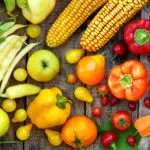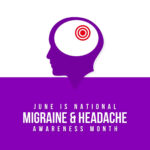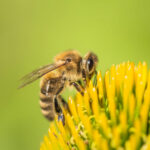Food Safety Week is a week-long annual celebration observed in the same week as World Food Safety Day and this year it will be marked on June 1 to 7. Food Safety Week was celebrated for the first time in 2019 to raise awareness of food-borne illnesses and encourages people to adopt food standards to avoid these diseases. Food safety is the handling, cooking, and storage of food in the best possible way to prevent food-borne illnesses. Some food safety principles include regular washing of hands and surfaces, separating raw and cooked food, cooking meals at the right temperature, and preserving food at a temperature of 40 oF and below.
History of Food Safety Week
Food-borne diseases are not a modern problem and have existed for hundreds of years. The first recorded case of food-borne illness can be traced back to Alexander the Great in 323 B.C. According to historical records, the ruler died from typhoid fever caused by Salmonella typhi.
Ancient Egyptians, Greeks, Chinese, and Romans were known to have employed preservation techniques and food labeling for food safety reasons. With the commercialization of production, states introduced food safety, sanitation, and hygiene legislation. The first of these appeared in the 13th Century. In 1202, the Assize of Bread and Ale Law was instituted to prohibit the adulteration of bread using ingredients such as ground peas or beans. In 1266, the U.K. parliament banned unwholesome food. The American colonists enacted the same law as the Assize of Bread in 1646 and later passed the Massachusetts Acts Against Selling Unwholesome Provisions in 1785. The latter was introduced due to the high rate of adulterated food sold in Canada and the U.S.
In the 19th and 20th centuries, the number of food safety and sanitation legislation passed worldwide significantly increased. That is attributed to the rise in food-borne diseases and deaths globally in the early 1900s. After WWII, there was more public interest in food safety, and people began calling on governments to introduce more robust food standards and regulations. During the mid-20th and early 21st centuries, a plethora of laws were established in the U.S., including the Poultry Products Inspection Acts, the Fair Labeling Act, the mandatory use of HACCP for low-acid canned foods, the Toxic Substances Control Act, and the U.S. Food and Drug Administration (FDA) Modernization Act. On December 20, 2018, the United Nations General Assembly adopted a resolution to proclaim June 7 as World Food Safety Day.
Food Safety Week timeline
Alexander the Great dies from suspected typhoid fever.
King John of England proclaims the Assize of Bread and Ale Law to prevent food adulteration.
Governments around the world increase the number of food safety and sanitation legislations.
On December 20, The United Nations adopts a resolution proclaiming June 7 as World Food Safety Day.
Food Safety Week FAQs
What are the five basic food safety rules?
They are: keep your food clean, separate raw food from cooked, cook thoroughly, store food at the proper temperature, and use safe water and raw materials.
Which are high-risk foods?
These include dairy products, foods containing eggs, cooked rice and pasta, meat, seafood, and poultry.
What causes food poisoning?
Infectious organisms, such as bacteria, viruses, parasites, or their toxins are the common causes of food poisoning.
How to Observe Food Safety Week
Share food safety guidelines
If you’re a teacher, you can use the week to educate your students on food-borne diseases and the necessary safety measures to avoid them. You can also share tips online on preventing food contamination and poisoning.
Prepare a meal
If you’re going to educate others on food safety, you also need to practice them at home. This Food Safety Week, commit to preparing your meals following the food safety rules by the World Health Organization.
Take part in Food Safety Week events
Events are organized around the world, both physically and online, to celebrate Food Safety Week. Find the ones happening near you in the World Food Safety Day FAO section of the WHO website.
5 Intriguing Facts About Food
Your best Vitamin C plug
Depending on the color, peppers are two to three times richer in vitamin C than oranges.
Honey can last thousands of years
Natural honey can stay fresh and good for consumption for over 5,000 years.
Chocolate was a currency
The Aztec and Mayan civilizations used chocolate to trade for food and clothing.
White chocolate is not chocolate
White chocolate is made up of sugar, milk, vanilla, lecithin, and cocoa butter, without any chocolate solids.
Cheese is the most stolen food
About 4% of the world’s cheese production is stolen, making it the most stolen food item globally.
Why Food Safety Week is Important
It promotes public health and safety
According to the United Nations, about 420,000 people die yearly due to eating contaminated food, with children under five making up 40% of them. Awareness created during Food Safety Week can help reduce these numbers.
It calls for government involvement in food safety
Governments have a crucial role to play in food safety as they serve as regulatory bodies for all social-economic areas. Food Safety Week forums encourage governments to introduce standards and stronger food safety infrastructure.
It encourages innovation
Food Safety Week provides a platform for stakeholders to meet and discuss. With such forums, the future of food safety is analyzed and actions to detect and manage food-borne risks can be instituted.
Food Safety Week dates
| Year | Date | Day |
|---|---|---|
| 2024 | June 3–9 | Monday–Sunday |
| 2025 | June 2–8 | Monday–Sunday |
| 2026 | June 1–7 | Monday–Sunday |
















































































































